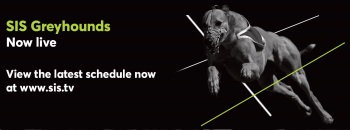1988 NGRC stewards announce plans to remove ‘classic’ status from the nine traditional events: the English and Scottish Derbys, the Scurry Gold Cup, the St.Leger, the Oaks, the Cesarwitch, the Grand Prix, the Gold Collar and the Grand National. The plan is to allow each of the top eight tracks, based on tote turnover, the opportunity of nominating an existing event for classic status. The Club also determine that from January 1 1999, no minor open will be worth less than £100 to the winner.
1946 A puppy costing £1,400, roughly £57,000 in today’s figures, was strangled by a chain in a ship’s hold while being transported from Ireland to England.
1993 Arizona tracks Phoenix and Apache warn trainers to stop supplying dogs to research laboratories. Some, allegedly, continue.
1958 The 4th Blue Riband Stakes over 525 yards at Wembley, sees Cesarewitch dead heaters Pigalle Wonder and Rylane Pleasure renew rivalry. This time Pigalle Wonder as 2-5 favourite beats Rylane Pleasure in a fast 29.00 to pick up the £100 and silver trophy for owner Al Burnett and trainer Jim Syder of Wembley.
1950 Eyebrows were raised in the Wembley judge’s box when Rapid Choice lost three and a half pounds in weight between a trial and a Trafalgar Cup trialstake five days later. He found more than half a second in the process. Ironically, had Rapid Choice been a graded dog, he would not have been allowed to run for exceeding the ‘2lb weight variation rule’. The track cannot apply the same sanction in opens since some tracks do not yet weigh the runners. A further irony, Choice only trialled at the Empire Stadium because Wembley only accept open race entries who already have form over the course and distance. Trainer Paddy McEvoy faces a stewards enquiry over the incident.
1963 Wembley handler Jim Rimmer is at Thurles to see his three runners, Trojan Van, Husky King and Veneer King finish first, second and fourth in the Irish Grand National. The trio had been handled for the race by Dick Kervick.
1936 Latest greyhound to arrive at Wimbledon trainer Paddy McEllistrim’s kennels is Want To Be Alone, kennel name Garbo, named after the film actress Greta, who said those famous words.
1969 Recent Dungannon sprint record breaker Kensington Lil is sold for 500 guineas at Hackney sales – that would be around £8,400 today. She will later throw open race starts Kensington Rover and Kensington Queen, dam of future Greyhound of the Year Sports Promoter.
1970 Irish owners and breeder organisation, IGBOA is threatening a national strike unless Bord na gCon change their new trap draw policy. The Board are holding trap draws several days before the meeting in an attempt to encourage more totalistor betting. The owners and breeders want to hold the trap draws in the half hour before the start of the meeting as was still the practice for many years in the Northern Irish tracks.
1967 The National Greyhound Society announces that it has again reached agreement with off-course bookies to provide an afternoon racing service. The tracks will retain tote odds copyright and Exchange Telegraph will provide the commentary. The bookmakers interests are handled for the first time, by a new non-profit making company, the Bookmakers Afternoon Greyhound Service (BAGS). They will charge their members annual fees of £75 (inner London), £50 (outer London and big towns) and £20 other areas. BAGS expect to hand over around £200,000 to the greyhound industry – the NGRS had hoped for £350,000.
2010 The new Limerick stadium opens to the public for the first time amid allegations of overpayment and financial folly by the Irish Greyhound Board.
1974 Permit track Cambridge decide to return to independent racing after five months under NGRC rules. Promoter Laurie Boost blames the extra administrative costs incurred.
1965 GRA announces it is expanding its board of directors to include Percy Brown (director of racing), Wimbledon’s John Cearns, and Walthamstow’s Charles Chandler jnr.
1979 Open race star Saucy Buck is retired to stud. Perhaps his greatest feat was that he won opens on 19 different tracks.
1995 The Henley Centre produces a report on the current state of greyhound racing. It calculated than on average, 37% of track profits came from catering, 27% from tote deductions, 10% from BAGS, 9% from admissions, with 3% from the BGRF and a similar amount from on-course bookies. The average expenditure was £1.6m, of which prize money and trainers was the highest contributor at £740,000 (46%), followed by wages (34%) and catering (17%). The study calculated that the 36 tracks earned around £6.4m from greyhound racing. The Government earned £13.6m. Greyhound racing comprised around 25% of bookmaker turnover, but it paid back, including BAGS, around 0.5% of its turnover. The study prophesied that if the Government reduced off course betting tax by two percent, and returned none of it to the greyhound industry, the number of tracks would fall from 36 to 26. If one percent went to punters and one percent was statutorily paid back to the greyhound industry, the number of tracks would rise to 45.












